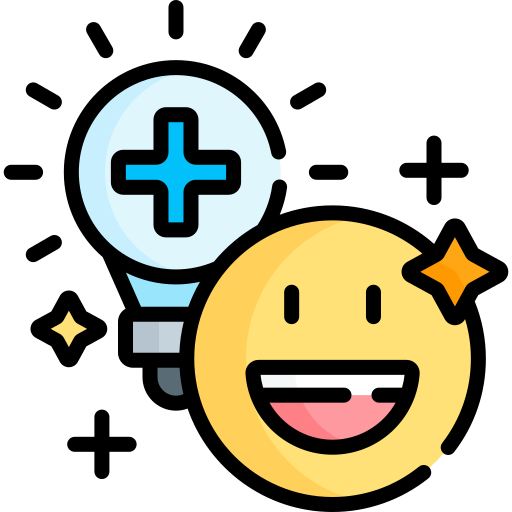
This logo isn't an ad or affiliate link. It's an organization that shares in our mission, and empowered the authors to share their insights in Byte form.
Rumie vets Bytes for compliance with our
Standards.
The organization is responsible for the completeness and reliability of the content.
Learn more
about how Rumie works with partners.
Life is 10% what happens to you and 90% how you react to it.
— Charles R. Swindoll, pastor, author, and educator
 Photo by Gabriel Valdez on Unsplash
Photo by Gabriel Valdez on UnsplashWhat is adaptability?
Adaptability means managing unexpected situations.
The quote above from Swindoll is an excellent reminder that, as uncontrollable as change may feel to you at times, adaptability at work is very much about your attitude and reaction to change.
In the workplace, a flexible individual can keep up with clients, projects, goals, and technology changes.

Why is workplace flexibility important?
 Photo by Mimi Thian on Unsplash
Photo by Mimi Thian on UnsplashEven though change "may be intimidating, it’s inevitable."
If the people in an organization don’t change, then the organization itself can’t change.
Employees who can adjust to changes in the workplace will be more successful and in high demand.
When you adapt, not only do you gain from it, you increase your value to the company as you learn new skills and adapt to changes with a positive outlook.
Why is adaptability at work so hard?
Changes are challenging because we tend to see them as problems instead of as chances for growth and education.
There is usually a loss involved.
Fears can drive resistance.
Habits are hard to change.
Workplace changes involve more than a single person.

But have no fear!
There are several things you can do to help you to adapt to change at work. Watch the video below for some tips:
How do I practice adaptability at work?
 Photo by Firmbee.com on Unsplash
Photo by Firmbee.com on UnsplashJane is working in accounting for a company offering fine wines to high-end clientele. The company's customer base grew a lot over the last two years and managing customer data became a real challenge.
Company leaders decided to invest in technology changes to make direct customer connections possible. Jane will have to undergo additional training to learn the automation of data-related tasks.
What can Jane do to adjust to the change?
Jane can follow the steps from the video above.

Be flexible: Jane prepares herself to do things differently from what she is used to and learn new skills.

Be open to failure: The new software has a steep learning curve. Jane is preparing herself for the fact that sales might be affected in the beginning.

Concentrate on things you can control: Jane is focusing on tasks and activities she can control like finishing the annual tax return on time, which will make her feel satisfied and content.

Have a positive attitude: Jane is focusing on the long-term advantages of automating their data.

Focus on the bigger picture: Jane realizes that changing to automating their data will allow for better and personal customer care.

Set new goals: By learning the new system, Jane will achieve one of her career goals of staying up to date with new technology.
Why is it important to stay positive in times of change?

Regardless of your position, positive thinking in times of change is a very important skill:
Not only can your state of mind affect how other people see you, but it also affects how happy and productive you are at work.
Positivity at work leads to greater job satisfaction and confidence.
By using positive self-affirmations you can turn negative thoughts into positive thoughts.
 Photo by Amanda Jones on Unsplash
Photo by Amanda Jones on UnsplashHow do I use positive affirmations at work?
Repeat positive statements before starting work. Boost your motivation and productivity levels by committing to a few minutes of "I am resilient," before you start your day's activities.
Pair affirmations with goal setting: You can repeat or visualize the affirmation, “I have confidence in my ability to present in front of others,” to enhance your presentation skills.
Combine them with positive thinking techniques. Repeating affirmations might help you think positively. For example, telling yourself, "I am successful at my job," can help you feel better about your situation.
Use them in your notifications. By setting affirmations as alerts on your smart devices, you can increase their effectiveness.
Repeat them whenever you engage in negative thoughts or behavior. Before presenting an important task, repeating affirmations like "I choose hope over fear" might help you overcome your feelings.

Let's try it!
Steve has been working for a tech company for many years. He is highly qualified and has an extensive network in the field.
He got news that his company is merging with a larger company and that he will be moved to another department. What should he do to prepare himself for the change ahead?

Steve is upset and angry. He decides to quit the company and look for another job.

Steve makes an appointment with the CEO to voice his concerns and fears.

Steve sees the change as an opportunity to learn more and improve himself by reading up on the new company's successes and approaches.

Steve decides to use all his leave and disappear until he has figured out how to deal with the change.
Quiz
Which of the options above will help Steve to adapt best to the change? Select all that apply:
It's easy to overreact in situations of change, but try to set your emotions aside and focus on the facts. Communicating your concerns is a proactive way of dealing and adapting with change. Being proactive and preparing ahead of time puts you one step closer to successfully adjusting to change. Use your resources, develop your soft skills, and focus on what you can control so that you can find new success in change.
Take Action

Say yes to change!
You'll become a better employee and human being when you acknowledge the fact that progress is impossible without change. Check out these resources for advice on how to adapt to a changing workplace:
This Byte has been authored by
Helouise Leith
Teacher, Post-Graduate Student
B.Consumer Science, PGCE